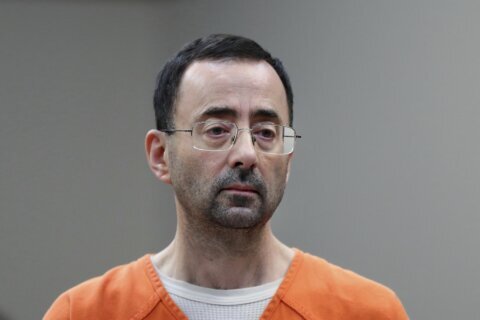Respiratory syncytial virus, or RSV, is a respiratory infection that is commonly known for affecting young children, but research in recent years has shed light on its impact on adults. RSV is not only a concern for older adults, but also for individuals with underlying chronic medical conditions, such as heart or lung disease.
With the potential to cause severe illness, and even death in some cases, recognizing the symptoms, risk factors and preventive measures is crucial to ensuring you and your loved ones stay healthy, especially during cold and flu season in the fall and winter months.
[See: Common Childhood Respiratory Diseases.]
What Is RSV?
RSV is a common, highly contagious viral respiratory infection.
“(The virus) gets back into your throat, your nose, and then importantly, it can get down into your chest and involve your bronchial tubes,” says Dr. William Schaffner, medical director of the National Foundation for Infectious Diseases and a professor of infectious diseases at the Vanderbilt University Medical Center in Nashville, Tennessee.
RSV has a reputation for being a serious disease in young children because they have very small bronchial tubes, the airways that let air in and out of your lungs. If they get inflamed, they tend to close off which results in difficulty breathing, Schaffner says.
In fact, RSV is the leading cause of hospitalization of children of ages 1 to 2.
[See: Ways to Boost Your Immune System.]
RSV in Adults
Though RSV is commonly known as a respiratory infection that affects children, researchers have learned a lot over the last 20 years about how it affects adults.
“We have come to learn that (RSV) is another very important winter respiratory virus that particularly affects older adults and people with underlying chronic illnesses, particularly those with heart disease and those with any kind of lung ailments,” Schaffner says.
According to the Centers for Disease Control and Prevention, RSV causes approximately 60,000 to 120,000 hospitalizations and 6,000 to 10,000 deaths annually among adults ages 65 and older.
RSV Symptoms in Adults
RSV symptoms in adults and children are very similar.
“You cannot differentiate them from ‘a common cold’ or ‘the flu’ without testing,” says Dr. Jay Varma, director of the Weill Cornell Center for Pandemic Prevention and Response and Kroll’s Chief Medical Advisor/Kroll Institute Fellow.
Common symptoms of RSV in adults and children include:
— Runny nose.
— Stuffy nose.
— Sore throat.
— Cough.
— Fever.
— Fatigue.
— Trouble breathing, in severe cases.
“Babies and young children tend to have more wheezing as a result of RSV infection, a condition known as ‘bronchiolitis,'” Varma says.
Risk Factors for RSV in Adults
Several underlying risk factors may make certain adult populations more susceptible to severe symptoms.
“RSV infections can occur in all adults, regardless of whether they have any underlying medical conditions,” Varma says. “The main difference is whether or not those infections cause severe illness.”
Specific factors and underlying medical conditions that can cause severe illness include:
— People who are older than 65 years old.
— Having a weakened immune system.
— Diabetes.
— Chronic heart disease or heart failure.
— Chronic lung disease, such as chronic obstructive pulmonary disease, or COPD, and asthma.
— Pregnancy.
“The most important long-term complication of RSV infection in adults is that it makes underlying medical conditions far worse,” Varma says. “Specifically, if you have diabetes, heart failure or COPD, an RSV infection can make your illness more severe both during the acute phase and after you seem to have recovered.”
RSV could also lead to serious conditions like pneumonia, or infection of the lungs.
Testing for RSV
Since they all involve the respiratory tract, influenza, COVID and RSV affect the body in a very similar fashion. Therefore, providers typically can’t be certain of which virus is causing the illness without testing.
“The methods to test for RSV are similar to those for COVID,” Varma says.
The most commonly used clinical laboratory testing for RSV includes:
— Molecular rRT-PCR tests. The best method is to use a PCR test.
— Rapid antigen tests.
According to the Centers for Disease Control and Prevention, rapid antigen tests are highly sensitive for younger children but not sensitive for older children and adults because they may have lower viral loads in their respiratory specimens.
Both PCR and antigen tests are completed by a health care provider. However, in May 2022, the Food and Drug Administration also authorized the first at-home PCR test where individuals can test for RSV and flu, as well as COVID-19. The Labcorp Seasonal Respiratory Virus RT-PCR DTC Test is available for use without a prescription. Individuals collect a nasal swab sample at home, send it out to Labcorp for testing, and the results of the test become available via an online portal.
How to Treat RSV in Adults
Currently, there are no drugs available to treat RSV infection. Mild cases of RSV typically resolve on their own within one to two weeks.
Treatment of RSV focuses on supportive, symptomatic care, including:
— Hydration.
— Fever and pain management, such as with over-the-counter fever reducers like acetaminophen.
— Oxygen support in severe cases.
People who are older, have underlying illnesses, are immunocompromised or pregnant should have a very low threshold for contacting their health care provider if they develop a respiratory illness, Schaffner emphasizes.
“The most important thing for adults is to try to prevent being infected in the first place,” Varma says.
RSV Prevention
In May, the Food and Drug Administration announced approval for the first RSV vaccine for use in the U.S. in adults ages 60 and older. In clinical trials, the vaccine has shown to be very effective at reducing severe illness.
The CDC’s Advisory Committee on Immunization Practices are expected to release guidance for who should receive the vaccine in late June.
Additional measures, especially during the winter months, can help prevent RSV and other respiratory illnesses.
“The same approaches that work for COVID can work for RSV,” Varma says.
Especially if you fall into a high-risk group, important preventive measures include:
— Using high-quality, well-fitting masks when out in public.
— Spending time outdoors or in well-ventilated areas.
— Improving ventilation — for example, opening windows — when you are indoors.
— Washing your hands thoroughly and often.
— Regularly cleaning and disinfecting surfaces.
More from U.S. News
What Are the Best Keto Foods to Eat?
What Are the Best Low-Carb Fruits?
What Are the Best Lower Body Exercises?
What Are the Symptoms of RSV in Adults? originally appeared on usnews.com







